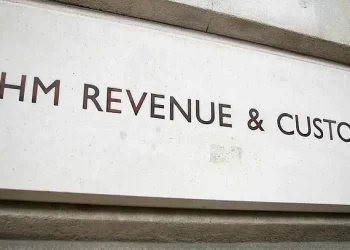The UK government has taken stringent measures against individuals and companies involved in tax avoidance schemes. A recent press release from the UK government highlights the disqualification of a director for promoting a tax avoidance scheme that cost HMRC more than £2.5 million.
This action is part of a broader effort to tackle tax avoidance, which has been a persistent issue, particularly in the context of COVID-19 relief measures and global tax reform initiatives.
Director Disqualified for Tax Avoidance Scheme
A director has been banned for ten years for operating a tax avoidance scheme without notifying the authorities, resulting in a loss of over £2.5 million to HMRC. This severe penalty underscores the government’s commitment to cracking down on such practices.
The disqualification is a clear message to those who might consider exploiting tax loopholes, emphasizing the serious consequences they could face.
Claire Entwistle, Assistant Director of Operations at the Insolvency Service, said:
Tax avoidance schemes are marketed as ways for people to pay less tax but do not always work as advertised, landing customers instead with a big tax bill.
Our public services also rely on everyone paying their taxes and schemes such as this deprive the UK of the revenue it needs to invest in our hospitals, schools and roads.
Peak PAYE’s director, Alastair Lunt, was required to notify HMRC of the scheme. He failed to do so, causing substantial losses to the public purse.
We will continue to work closely with our partners at HMRC to disrupt and clamp down on scheme promoters such as Peak PAYE.
COVID-19 Relief and Tax Havens
The issue of tax avoidance has been particularly pertinent during the COVID-19 pandemic. The UK government’s Covid Corporate Financing Facility (CCFF) provided loans to numerous companies, some of which had links to tax havens.
According to a report by TaxWatch UK, over 29% of the loans were given to companies with connections to tax havens, raising concerns about the conditions under which state support is provided.
Dame Margaret Hodge MP, chair of the All Party Group on Responsible Taxation, has suggested that government support should be conditional on companies committing to lower their tax risk rating with HMRC. This proposal aims to ensure that companies receiving state aid do not engage in tax avoidance practices.
Global Tax Reform and UK’s Role
The UK’s stance on tax havens and global tax reform is complex and often criticized. The Tax Justice Network has highlighted that the UK and its network of British tax havens are responsible for a significant portion of global corporate tax abuse risks.
Countries are estimated to lose $84 billion annually in corporate tax due to multinational corporations using these tax havens to underpay tax.
“The UK’s ‘rules for me, not for thee’ attitude is exactly why countries must press on with plans to agree global tax rules democratically at the UN,” said Sara Hall, deputy director at Tax Justice UK.
“The UK must recognise its old road of tax havenry is a dead end.”
HMRC’s Counter-Avoidance Strategy
The HMRC has been actively working to combat tax avoidance through various measures. HMRC has implemented anti-promoter measures since 2021, securing over £500 million in tax that would have gone unpaid.
HMRC has publicly named 65 avoidance schemes and 59 companies promoting avoidance, and has issued 24 ‘stop notices’ prohibiting the sale of specific schemes.
Implications and Potential Impacts
The recent disqualification and ongoing efforts by HMRC indicate a shift towards stricter enforcement of tax laws. This could lead to increased compliance among companies and individuals, reducing the likelihood of large-scale tax avoidance schemes.
However, the effectiveness of these measures will depend on continued vigilance and the implementation of global tax reforms.
The UK’s new government should break with the previous government’s obstructive approach to UN-led global tax reform efforts and support more transparent and equitable global tax rules.
Final Thoughts
The UK government’s actions against tax avoidance are a step in the right direction towards ensuring fiscal integrity and fairness. As the global landscape continues to evolve, the UK’s role in promoting or hindering international tax reform will be crucial.
“As we move forward, it is imperative that the UK aligns its domestic policies with global efforts to combat tax evasion,” said David Lammy, UK Foreign Minister.
“We must be honest about our role and work towards a more transparent and fair tax system.”
As the UK navigates its position in global tax reform, it must balance its own economic interests with the need for international cooperation. The success of these efforts will not only impact the UK’s revenue but also its global reputation and the broader fight against tax evasion.
Sources: THX News & The Insolvency Service.









